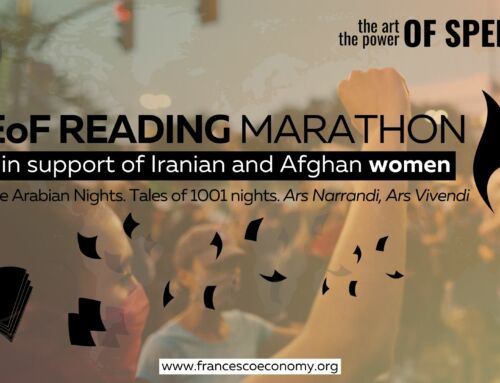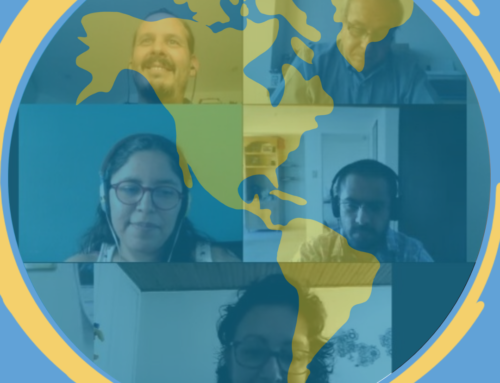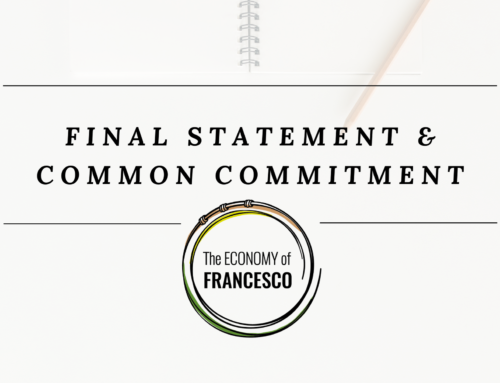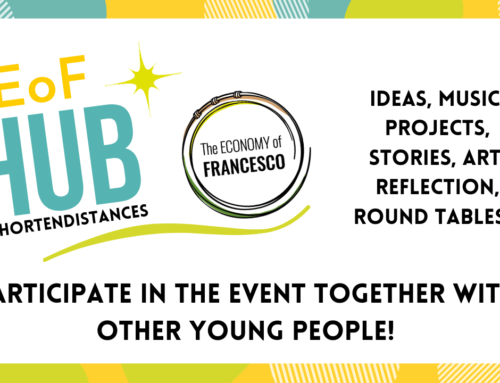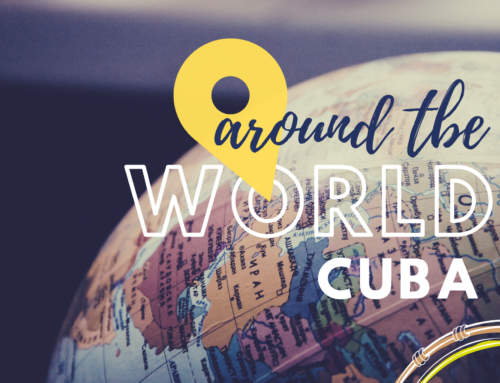The Economy of Francesco is manifested in many different ways around the world. One of the greatest riches in trajectory is the work that is done in the territories. Each one, with a particular form and substance, contributes and helps to build a more inclusive and fraternal economy.
From The Economy of Francesco we wanted to conduct an interview through Instagram Live with Valentina Alarcón, she is a changemaker from Chile and also one of the main organizers of the group “The Economy of Francesco Chile”.
With a jovial spirit, Valentina tells us how this group arises in parallel to a pandemic, characterized by the multiplicity of professions and charisms, and marked by the social, economic and political situation:
“The Economy of Francesco Chile arises from Pope Francisco’s call to the youth. On the one hand, there were the young people who had applied and been selected and who had started to contact each other. On the other hand, there were the people who, because they were over 35 years old or had found out late about the call, had not been able to apply, but were still interested in building something from Chile. Before March, we had already held three meetings and we thought: “we are ready to go to Assisi”.
But in March everything changed and when we learned that it was being postponed until November, we saw a possibility of further consolidating this path and this group that was beginning to emerge in Chile. To date, we are more than 65 people in the group, 16 of whom are young people who participate in The Economy of Francesco. We decided on a methodology in which we will carry out 6 sessions until November, in which we will deal with global problems, but also local ones, the current tensions in Chile“.
Valentina explains that each of these meetings have a structure in which they first listen to the expert on a topic. The topics are always different and they seek to relate them to those addressed within the villages, in addition to sharing the work being done in them and transferring all this to others in Chile. Then an expert in the spirituality of Saint Francis intervenes, in spite of the diversity of creeds. Finally, two questions are posed and answered in the light of the Laudato Si’.
A characteristic aspect of this group is that the themes are grounded in the situation. Valentina explains it:
“We take all the current tensions and challenges very seriously and with respect. We have taken them as part of our essence. Within this exercise, dialogue is fundamental. In spite of the ideological, professional and even age differences, we feel called and identified with the Pope’s letter and that is where we start from.
In The Economy of Francesco Chile there are people from the business sector, civil society and people who work or have worked with the State. We know that we are very different and that there are things in which we are not going to coincide, but that is the richness of Francisco Chile’s Economy”.
Valentina concludes:
“When you receive a letter, it’s a personal decision to open it or not. To answer it or to discard it. Our first point was to find people who were willing to respond with their lives to that letter. The second main point is to create a community, something that is not easy at all. If someone is trying to do it in their country, I mean it takes time, it takes relationships”.

